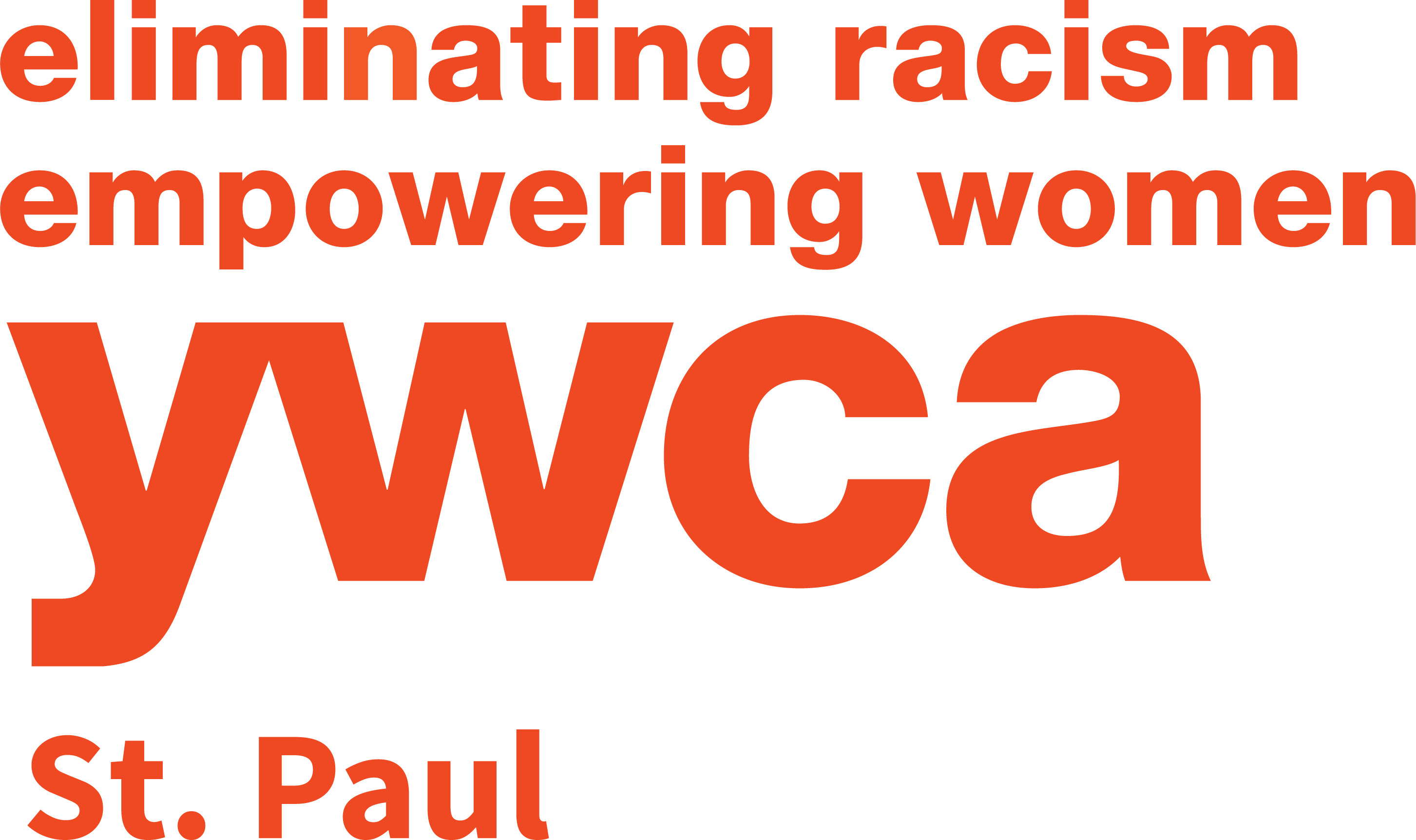Black History Month celebrates the impact Black heritage has had on our country. As we take a look back at history, it’s also important to determine how we’re going to change for the future. And part of the change includes learning about the impacts Black, Indigenous and Immigrant cultures have had, and continue to have, on society.
To further the understanding of racism and equity and to drive positive change that helps eliminate systemic racism, YWCA St. Paul created a Learning Library of Movies/Documentaries, Poetry, Articles, Podcasts and Books. These resources provide information on racial justice, racism and the impact of racism on lived experiences.
Movies/ Documentaries:
- True Justice: Bryan Stevenson’s Fight for Equality (George Kunhardt) A look at how Alabama attorney Bryan Stevenson struggles to create more fairness in the legal system.
- Get Out (Jordan Peele) A horror-comedy film that explores modern American racism.
- When They See Us (Ava DuVernay) A four-episode depiction of what led to the wrongful 1990 conviction (and eventual exoneration in 2002) of a handful of teenage Black boys from Harlem in the violent rape and assault of 28-year-old New York banker.
- Selma (Ava DuVernay) An historical drama based on the 1965 Selma to Montgomery voting rights marches.
- Say Her Name: The Life and Death of Sandra Bland (David Heilbroner, Kate Davis) An investigation into what happened to activist Sandra Bland, who died in police custody after a routine traffic stop.
- Do the Right Thing (Spike Lee) Released 30 years ago, the film explores how racial inequality drives conflict in a predominantly African-American community on the hottest day of the summer.
- LA 92 (Daniel Lindsay and T.J. Martin) LA 92 is about the Los Angeles riots that occurred in response to the police beating of Rodney King. The film is entirely comprised of archival footage.
Poetry:
- Counting Descent (Clint Smith)
- Rekia Boyd (Porsha Olayiwola)
- Don’t Call Us Dead (Danez Smith)
- 1919: Poems (Eve Ewing)
Articles:
- Still Separate, Still Unequal: Teaching about School Segregation and Educational Inequality (Keith Meatto)
- The American Nightmare (Ibram X. Kendi)
- The Presence of Justice (The Atlantic)
- Race and Housing (Habitat for Humanity)
Podcasts:
- Still Processing (The New York Times)
- The Stoop (Hana Baba and Leila Day)
- The United States of Anxiety (WNYC Studios)
- The Nod (Gimlet)
- 74 Seconds (Minnesota Public Radio)
Video Clips:
- Trevor Noah, “George Floyd and the Dominos of Racial Injustice,” The Daily Show, May 29, 2020 — Recent protests across the globe were sparked by a series of videos that captured racism on camera, such as the shooting of jogger Ahmaud Arbery in Georgia, the Central Park woman who phoned police against bird watcher Christian Cooper, and the Minneapolis police homicide of George Floyd. Trevor Noah explains the domino effect of these videos, and how to interpret news coverage of Black Lives Matter protests.
- Trevor Noah, The Daily Show, December 26, 2018, interviews Eve Ewing about her book Ghosts in the Schoolyard and structural racism in education.
Books:
- Stamped from the Beginning by Ibram X. Kendi. The National Book Award winning history of how racist ideas were created, spread, and deeply rooted in American society.
- The Half Has Never Been Told by Edward E. Baptist. A groundbreaking history demonstrating that America’s economic supremacy was built on the backs of slaves. Winner of the 2015 Avery O. Craven Prize from the Organization of American Historians Winner of the 2015 Sidney Hillman Prize.
- An Indigenous Peoples’ History of the United States by Roxanne Dunbar-Ortiz. Acclaimed historian and activist Roxanne Dunbar-Ortiz offers a history of the United States told from the perspective of Indigenous peoples and reveals how Native Americans, for centuries, actively resisted expansion of the US empire.
- Green Card Youth Voices: Immigration stories from a Minneapolis High School (Written by 30 Wellstone Int. High School students)
- While the Locust Slept by Peter Razor. An Ojibwe man chronicles his survival of abuse and bigotry at a state orphanage in the 1930s and the brutal farm indenture that followed.
- The Nickel Boys by Colson Whitehead. Based on a true story, this Pulitzer Prize winning novel tells the story of a reform school in Florida and its impact on the life of an African American teenaged boy.
- Race for Profit: How Banks and the Real Estate Industry Undermined Black Homeownership by Keeanga-Yamahtta Taylor. A finalist for the 2020 Pulitzer Prize in History, Race for Profit chronicles how the Housing and Urban Development Act of 1968 failed to stop racist, exploitative mortgage lending practices.
- A Terrible Thing To Waste: Environmental Racism And Its Assault On The American Mind by Harriet A. Washington. From lead poisoning to toxic waste, Americans of color are disproportionately harmed by environmental hazards.
- Automating Inequality: How High-Tech Tools Profile, Police and Punish the Poor by Virginia Eubanks. Algorithms are made by humans, so they are susceptible to human biases. From deciding which neighborhoods get policed to who gets welfare benefits, discrimination has gone digital.
- Blackballed: The Black Vote and U.S. Democracy by Darryl Pinckney. The author makes the case that black political representation has been chipped away by voter ID laws, gerrymandering and felon disenfranchisement.
- Dog Whistle Politics: How Coded Racial Appeals Have Reinvented Racism and Wrecked the Middle Class by Ian Haney López. Politicians have relied on racially coded language to win over white voters and decimate social programs. Dog Whistle Politics makes the case that not only does this strategy endanger people of color, but it also hinders economic mobility for all Americans.
- Killing the Black Body: Race, Reproduction, and the Meaning of Liberty by Dorothy Roberts. By using the history of how American law–beginning with slavery–has treated the issue of the state’s right to interfere with the Black woman’s body, the author makes the case for legal redress of the racist implications of current policy.





